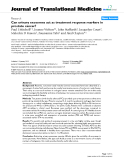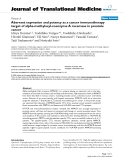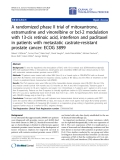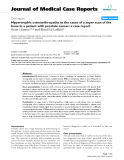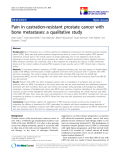
140
JOURNAL OF MEDICAL RESEARCH
JMR 184 E15 (11) - 2024
Corresponding author: Nguyen Thi Binh
Hanoi Medical University
Email: binh.bu@gmail.com
Received: 27/08/2024
Accepted: 09/10/2024
I. INTRODUCTION
LIFE QUALITY AFTER ORCHIECTOMY OF THE BONE
METASTATIC PROSTATE CANCER PATIENT
Can Phuong Linh1, Bui Bich Lien1,2 and Nguyen Thi Binh1,
1Hanoi Medical University
2National Cancer Hospital
Prostate cancer (PC) with bone metastasis has many clinical symptoms that very much affected to the
patient’s quality of life (QoL). Improving cancer patient’s QoL is a mission for the health care professional
workers. The study using questionaires SF-36 and UCLA-PCI-SF- a simple and common methods to evaluate
the progress of orchiectomy treatment for bone metastases PC to assess the QoL and prostate-specific functions
before and after orchiectomy. Clinical manifestations such as urinary tract, sexual function symptoms, anxiety,
bone pain and insomnia affected the HRQoL (health related quality of life) of 53 participated patients were quite
high from 69.8% up to 90.6%. After 1 month of orchiectomy, these symptoms were markedly reduced to less
than 20%; Anxiety and Insomnia still affected 50.9% and 47.1% of study participant, respectively. HRQoL of 53
PC patients with bone metastasis after orchiectomy was remarkably improved. All domains of SF-36 and UCLA-
PCI-SF after orchiectomy were statistically significantly increased with p-value < 0.05, except sexual bother.
Keywords: HRQoL, orchiectomy, PC with bone metastasis, SF-36, UCLA-PCI-SF.
Prostate cancer (PC) is one of the most
prevalent malignancies in males and is one of
the leading causes of cancer-related deaths
globally.1 PC progresses slowly over many years
in silence and when it presents clinically, the
disease is already at a late stage, with distant
metastases.2 Bone is the most common site of
PC metastasis, with approximately 90% of PC
patients.3 PC patients with bone metastasis
often experienced symptoms of body fatigue,
urinary tract problems such as painful urination
or incontinence, night frequently urination; at the
risk of severe pain, spinal cord compression, all
created poor quality of life (QoL).4
Androgen deprivation therapy (ADT),
accomplished with medical castration or
orchiectomy by eliminating the source of life for
PC cells to growth, has the advantage of high
patient compliance and cost savings.5,6 Studies
showed orchiectomy improved prostate cancer-
specific functional indexes QoL and urinary
functions.7,8
To evalutate QoL, a short survey sample
SF-36 including: physical functioning, role
physical, bodily pain, general health, vitality,
social functioning, role emotional are simple
and reliable, has been used widely. To assess
prostate specific function a UCLA-PCI-SF
questionnaire of California Los Angeles
University which was applied throuthly in
clinical practice and research, a specific
and useful questionaire, was designed in 6
subscales included urinary function, urinary
bother, sexual function, sexual bother, bowel
function, and bowel bother, are toolkits often
used in combination to assess HRQoL in men






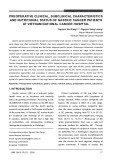
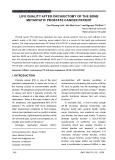
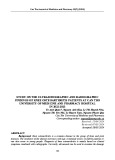
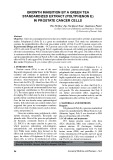
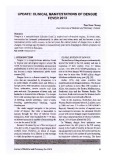
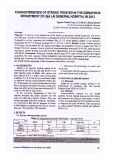
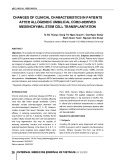
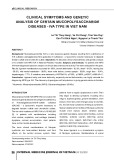
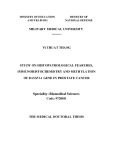

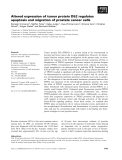
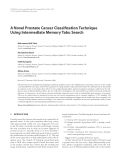
![báo cáo hóa học:" Comparative study of 64Cu/NOTA-[D-Tyr6,beta-Ala11,Thi13,Nle14]BBN(6-14) monomer and dimers for prostate cancer PET imaging"](https://cdn.tailieu.vn/images/document/thumbnail/2012/20120216/sting06/135x160/2191_219x_2_8_4685.jpg)
